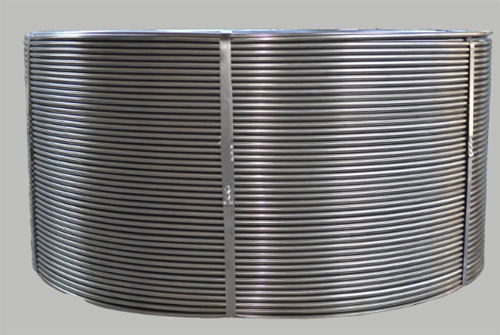
Calcium cored wire is a vital component in the steelmaking process, offering precise control over alloy composition and enhancing steel properties. Understanding the technical parameters associated with calcium cored wire is crucial for steelmakers to achieve desired results. This article explores the essential technical parameters of calcium cored wire, providing insights into their significance and implications in steel production.
The wire diameter is a critical parameter that influences the amount of calcium released into the molten steel. Steelmakers must carefully select the appropriate wire diameter based on the desired alloying effect and steel composition requirements. The tolerance level for wire diameter ensures consistency and accuracy in alloy addition, minimizing variations in steel properties.
The calcium fill ratio represents the percentage of calcium alloy within the cored wire. It plays a crucial role in determining the amount of calcium released during steelmaking. Steelmakers must consider the desired calcium content in the steel and select the appropriate fill ratio to achieve the desired alloying effect. Careful control of the fill ratio ensures consistent and precise calcium addition.
Wire density refers to the mass per unit volume of the calcium cored wire. It affects the wire's handling, feeding, and melting characteristics during steelmaking. Steelmakers must consider the wire density to optimize wire feeding systems and ensure smooth and efficient wire injection into the molten steel. Consistent wire density promotes uniform alloy distribution and reliable alloying effects.
The composition of the calcium alloy within the cored wire is a fundamental parameter that determines the alloying effect on the steel. The calcium alloy composition, including the calcium content and other alloying elements, is tailored to meet specific steel requirements. Steelmakers must carefully select the appropriate alloy composition to achieve desired steel properties, such as strength, corrosion resistance, and machinability.

The wire melting temperature is a crucial parameter that influences the timing and efficiency of calcium release during steelmaking. Steelmakers need to ensure that the wire's melting temperature aligns with the steelmaking process to achieve optimal alloy release and desired alloying effects. Careful consideration of the wire melting temperature enhances process control and prevents premature or delayed alloy release.
Wire stability and shelf life are essential considerations for steelmakers. The stability of the calcium cored wire, including its resistance to oxidation and moisture absorption, ensures its effectiveness during steelmaking. Steelmakers must store and handle the cored wire in controlled conditions to maintain its stability and extend its shelf life. Regular quality checks and proper storage practices are essential to preserve the wire's integrity and performance.
Calcium cored wire technical parameters play a crucial role in steelmaking, enabling precise control over alloy composition and enhancing steel properties. Steelmakers must carefully consider wire diameter, calcium fill ratio, wire density, alloy composition, wire melting temperature, and wire stability to achieve desired steel outcomes.

Write a Message